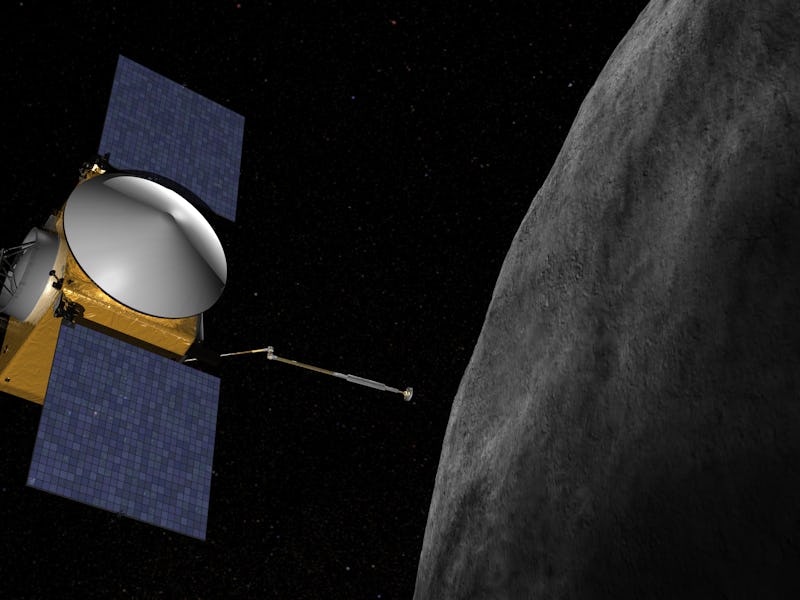NASA’s putting the final touches on its OSIRIS-REx mission and gearing up for a September 8 launch. Although the big focus is how the spacecraft will acquire organic materials from a near-Earth asteroid and bring it back to this planet for scientific analysis, there’s plenty more involved in the mission’s investigative goals.
In one respect, OSIRIS-REx will provide us our best yet understanding of how to prevent a threatening asteroid from slamming into Earth.
See, when OSIRIS-REx finally rendezvous with Bennu the asteroid in the fall of 2018 and before it attempts a retrieval sample in July 2020, it will spend a little less than two years orbiting the asteroid and mapping out minerals and elements that compose the rock’s surface using a slew of spectrographic instruments.
Part of that time in orbit will also be used to study something called the Yarkavosky effect. Basically, it’s when an asteroid absorbs solar energy as it nears or faces the sun, and at some point releases it in such a way as to create a force that creates momentum on the rock in a specific direction. The Yarkovsky effect “acts like a thruster and changes trajectory of asteroid,” explained OSIRIS-REx principal investigator Dante Lauretta during a press conference on Wednesday.
The Yarkovsky effect isn’t such an epic way an asteroid creates an artificial booster for itself. Because the effect causes the asteroid to change trajectory, it means NASA has a more difficult time predicting the path of the asteroid as it orbits the sun.
The Yarkovsky effect, illustrated.
And that’s incredibly bad for instances where NASA scientists are trying to figure out if a giant rock hurtling through the vacuum of space is on a collision course with Earth. The world’s space agencies have done a pretty good job cataloguing a lot of near-Earth objects so far, but that work is fruitless if we don’t understand how those objects move through space and what could induce an unpredictable trajectory leading to cataclysm.
OSRIS-REx will be the first mission to ever fully study the Yarkovsky effect. For security reasons alone, let’s hope it’s successful.
